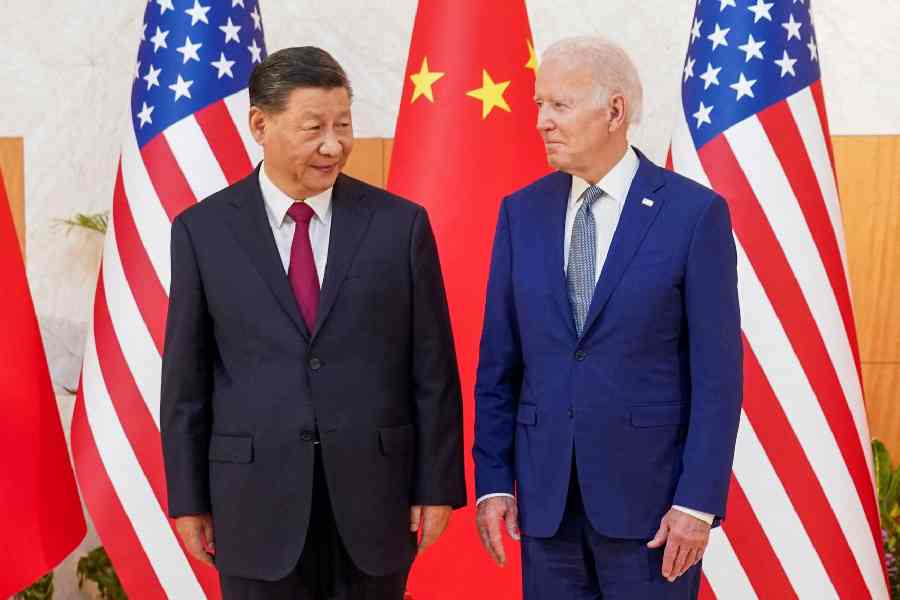President Joe Biden said on Wednesday that four hours of discussion with President Xi Jinping of China had brought about two significant agreements, on curbing fentanyl production and on military-to-military communications.
But both American and Chinese accounts of their first encounter in a year indicated little progress on the issues that have pushed the two nations to the edge of conflict.
Emerging from the talks, and a brief walk with Xi on the grounds of a mansion south of San Francisco, Biden told reporters that the conversation had been the “most constructive and productive” between the two men since Biden had come to office. The agreements they announced were modest, however, and their most important commitments were to keep talking and to pick up the phone in times of crisis.
On one of the critical issues, barring the use of artificial intelligence in the command and control systems of their nuclear arsenals, no formal set of discussions was established. Instead, Biden’s aides said that Jake Sullivan, the national security adviser, would keep talking with Wang Yi, China’s chief foreign affairs official.
Biden went out of his way to show respect for Xi, greeting him at the entrance to Filoli, a century-old mansion with gardens that was chosen as a private locale for the leaders of the world’s two most critical military, technological and economic superpowers to talk. Xi also sounded accommodating when he arrived, telling Biden, “Planet Earth is big enough” for both superpowers. He told Biden that their countries were very different but should be “fully capable of rising above differences”.
Those are the standard niceties of diplomatic encounters between the two countries, especially in recent months, as Chinese leaders have begun to worry about the flight of US investors from the country.
But at the end of a news conference on Wednesday evening, after Xi had departed, Biden was asked whether he still regarded Xi as a dictator. Biden had used the word, to China’s fury, this year.
“Well, look, he is,” Biden said. “I mean, he’s a dictator in the sense that he’s a guy who runs a country that is a communist country.”
The US and Chinese accounts, the leaders largely repeated old talking points about Taiwan, even as Xi voiced worries that the coming election on the island could lead to talk of independence.
New York Times News Service











